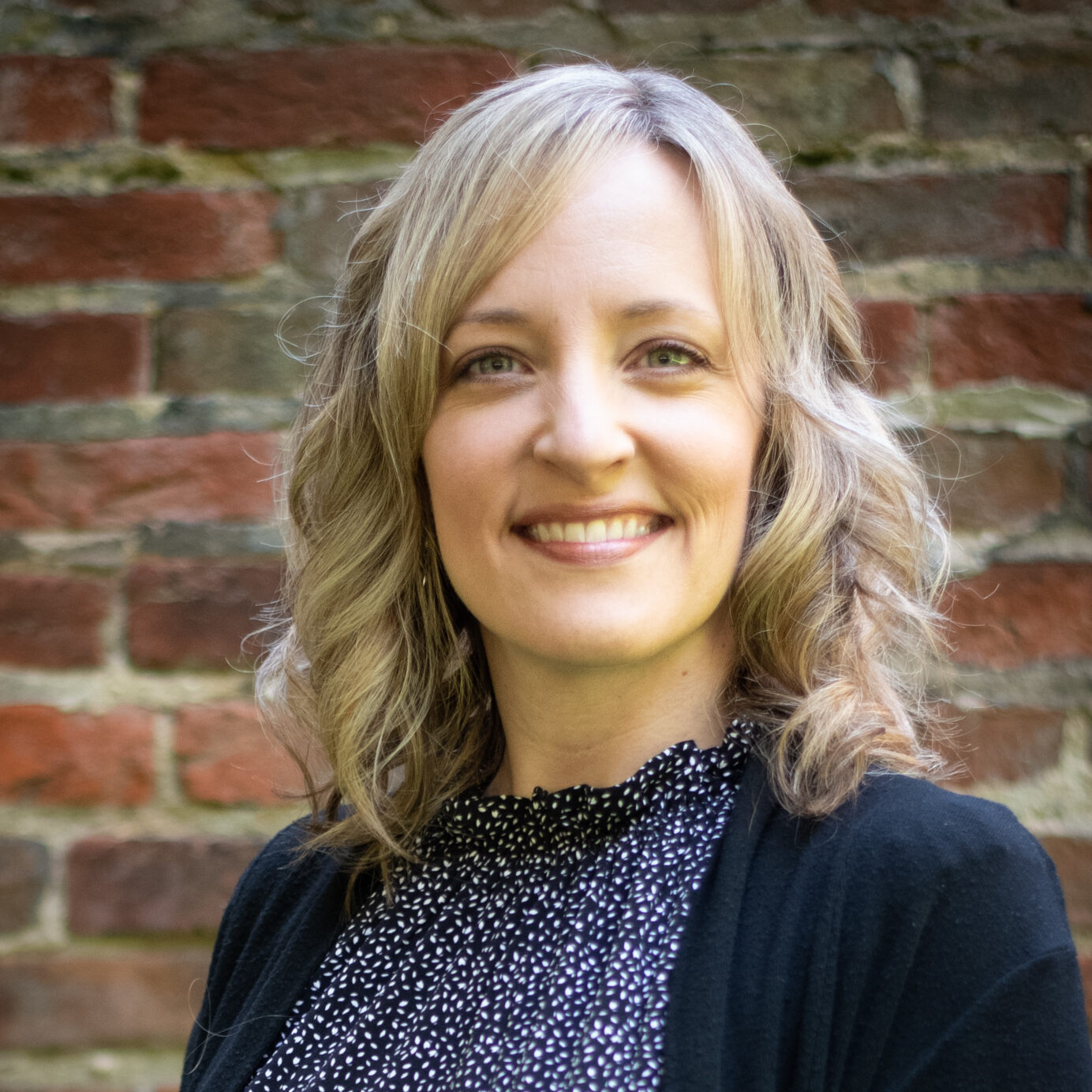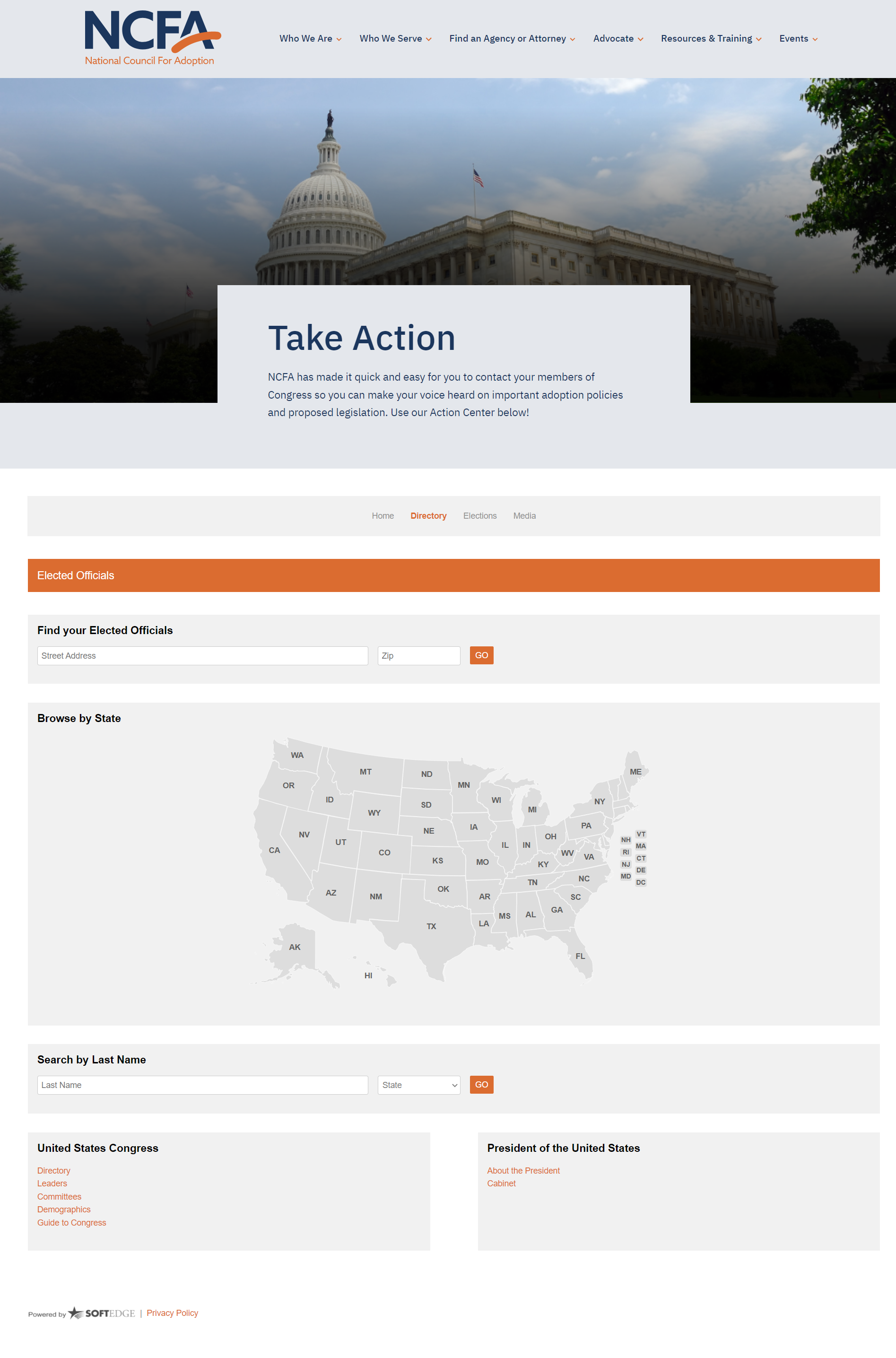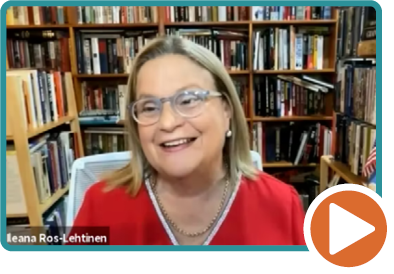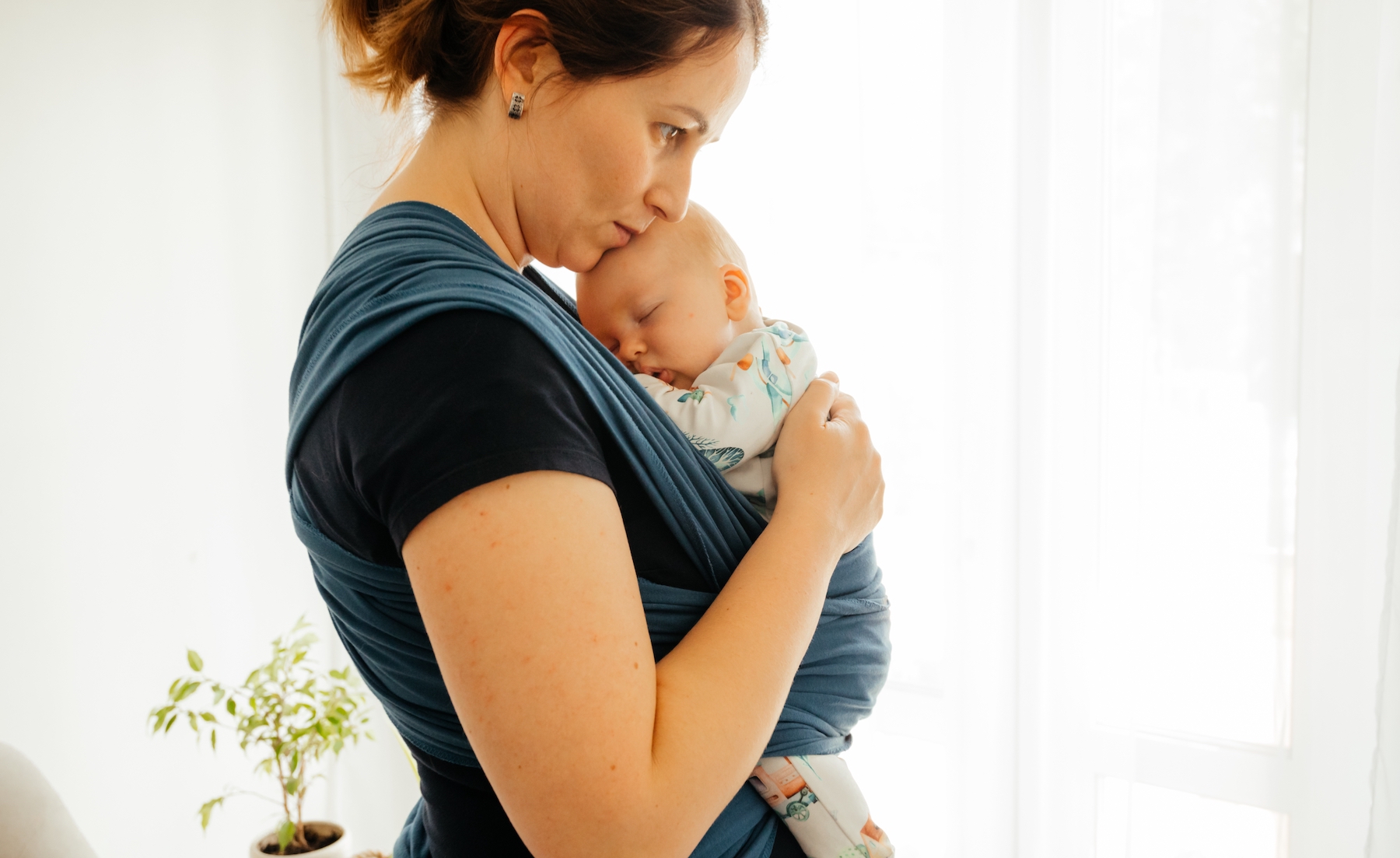How Adoption Will Be Impacted If Congress Passes These Four Bills in 2022
Adoption Advocate No. 163
Improving the adoption process and long-term outcomes for everyone impacted by adoption will require legislative action by Congress to address key issues. In the January 2022 issue of the Adoption Advocate, we break down NCFA’s legislative priorities for the year to explain four pending and future bills that can make adoption better and how advocates can take action to understand the issues and engage with their members of Congress.
In any given session of Congress, thousands of bills are proposed, and of those, hundreds are reviewed, marked up, and voted on. While these bills address a variety of critical issues, we believe that Congress should prioritize the expedient passage of laws that cultivate a society that affirms the human right of every child to thrive in a permanent, loving family and removes unnecessary barriers to adoption. For hundreds of thousands of children in the U.S. and around the world, adoption is the only pathway to the family they deserve. As a longstanding national adoption advocacy organization, the National Council For Adoption (NCFA) has identified four critical pieces of legislation that we believe Congress should pass in 2022 to effect positive changes in the adoption system and move more children to permanency in a timely manner.
None of these bills on their own will create the type of reforms and policy changes that are needed to address the full scope of the problem. But taken together, with bold Congressional leadership, engaged grassroots advocates, and actionable commitment from policymakers and regulators to removing the barriers to adoption, we can make significant progress for the children and youth who are counting on us.
Make Your Voice Heard!
Use NCFA’s online advocacy action center to contact your members of Congress! They want to hear directly from their constituents so we have made it quick and easy for you to find and contact them. Use our template messages and call scripts – or write your own – to speak up for adoption. Take action and spread the word!
Increasing Adoptions by Resourcing Adoptive Families
Adoption Tax Credit Refundability Act (S. 1156/H.R. 3031)
Status: Currently with the House Ways and Means Committee and Senate Finance Committee
The Problem: Families with lower incomes and lower tax liability should not be excluded from access to the adoption tax credit (ATC), but since the credit is currently non-refundable that is exactly what happens. In short, because these families have lower income tax liability they cannot receive the adoption tax credit or only receive a small portion of it. The families who need it most are being left out.
The Solution: A refundable ATC provides critical financial resources to help prospective adoptive parents afford the adoption process and, in the case of adoptions from foster care, support the ongoing costs of services for their adopted children who have experienced trauma and/or have medical or other special needs. This bill will restore refundability to the ATC, opening up a vital source of support for otherwise willing and qualified prospective adoptive families. When passed, it would enable adoptive parents to claim the full credit which is currently just over $14,000[1].
The Impact: The majority of intercountry adoptions today are of children with a known medical or other special need, and cost anywhere from $25,000 - $40,000 on average. For many families, that kind of financial burden puts adoption out of reach. Meanwhile, children languish in institutions and orphanages around the world. We can do better. With a refundable adoption tax credit, more families can say ‘yes’ to providing a permanent, loving home to a waiting child.
With over 100,000 children and youth waiting for adoption from the U.S. foster care system[2], not only would this bill increase adoptions and improve outcomes for families, it would also lower the long-term human and fiscal costs to society associated with nearly 20,000 youth aging out of the system. We can do better, and we call on Congress to do its part by restoring refundability to the Adoption Tax Credit.
The Objection: This legislation has strong bipartisan support, but some question whether making the tax credit refundable is too expensive. NCFA believes the societal cost of NOT financially supporting adoptions, particularly from foster care, is much greater than the cost of the credit. “Young people who leave the child welfare care system without a permanent family enter the mental health, substance abuse, homeless services, employment services and criminal justice systems in disproportionate numbers and at great cost. We can save an estimated eight billion dollars by finding adoptive families for these youth instead.”[3]
Restore Integrity to America’s Promise of a Permanent Home
Adoptee Citizenship Act (S. 967/H.R. 1593)
Status: Currently with the Senate Judiciary Committee and House Judiciary Committee/Sub-Committee on Immigration & Citizenship
The Problem: An unintended loophole in the Child Citizenship Act of 2000 left thousands of intercountry adoptees without citizenship through no fault of their own. These adoptees were legally brought to the U.S. as children, by their U.S. citizen parents, for purposes of adoption. But, unbeknownst to them, the paperwork for their citizenship was never completed. As a result, these individuals, who have often known nothing but the U.S. as their home, have encountered significant hardship and struggle in the costly and complex effort to obtain citizenship as adults. Some have been deported and many live in constant fear of such a fate.
Congress’ unwillingness to resolve this issue for nearly 20 years has undermined the United States’ standing in the world as a global leader for adoption and challenged key diplomatic relationships with the central adoption authorities of foreign governments. Moreover, it has damaged the trust of the adoptee community in the U.S. intercountry adoption system, and brought great harm to those individuals and their families who have been deported or unable to obtain citizenship.[4]
The Solution: Now is the time for Congress to right this longstanding injustice through the Adoptee Citizenship Act. NCFA strongly supports language for this bill that would close the loophole and provide automatic citizenship to all intercountry adoptees who were over age 18 at the time the Child Citizenship Act of 2000 was passed, including those who came to the U.S. on IR-4 visas from countries such as South Korea and India.
The Impact: Intercountry adoptees have a right to citizenship equal to that of the biological children of U.S. citizens. Congress must do its part to end the suffering of adult adoptees without citizenship by truly fulfilling the promise of a permanent home and restoring confidence in the U.S. as a safe place for intercountry adoptees.
The Objection: The Adoptee Citizenship Act has been introduced in multiple sessions of Congress, and always seems to get stalled out by some who conflate the bill with controversial immigration issues. This is not an immigration issue. These individuals were brought here as children through a legal intercountry adoption process. This is simply a bill that will fix a technical loophole to provide the citizenship that adoptees were already due.
Simplify the Adoption Process and Support Families with a National Registry for Birth Fathers
The Problem: To finalize the adoption of a child through infant domestic adoption in the U.S., the parental rights of the birth parents must be decided by a judge. Typically, the identity of the mother is known, but sometimes the identity of the father is not. While states have procedures for terminating the rights of an unknown father, such as by providing public notice, sometimes a man learns of a legal proceeding related to a child he believes he may have fathered later in the adoption process. If he seeks to intervene in the process that is already well underway, it can delay or disrupt the adoption. This outcome is not in the best interest of the child, the birth parents, or the adoptive parents. Why might a man learn about the proceeding later in the process? Often it is due to a lack of connection between state-specific registries.
Most states have registries in which a man who may have fathered a child out of wedlock can provide contact information so that he is notified if there is a proceeding related to that child and can participate in the proceedings in a timely manner should he choose to do so. When a man registers, he may receive timely notice of a legal proceeding related to the child. He can then either participate or decline to participate in the process, and his rights will be adjudicated so that decisions about the child can be made without delay.
Responsible father registries:
(1) empower men to take responsibility for their parental rights by enabling them to register and obtain notice of a proceeding;
(2) take the burden off women to identify potential fathers, protecting a woman’s privacy and safety, especially in cases of rape or domestic violence; and
(3) most importantly, enable children to find a permanent home more quickly.
It is not uncommon for the birth parents to live in different states at the time of birth and the adoption process. The father may not be registered in the state that the child was conceived or born in. This is problematic because there is no mechanism to connect the state registries so that an adoption professional can do a single search and find the birth father regardless of where he registered. Because the registries are not linked, the possible father who registers in a timely fashion in State A may not get notice of a proceeding in State B. When a possible father is not identified and notified in a timely manner, he may not be given the opportunity to be heard, and the adoption proceeding can be disrupted or delayed when he seeks to intervene at a later time.[5]
The Solution: Congress should pass a law to create a national responsible father registry that will connect the state registries. A central registry will enable adoption professionals to conduct a nationwide search for any potential father and will better protect men’s rights without forcing the mother to reveal her whereabouts and expose her to potential danger or abuse.[6] Perhaps most importantly, a national registry will enable children to find a permanent home more quickly by ensuring timely adjudication of birth father rights even in adoptions that cross state lines. Bills have been introduced by Congress over the years,[7] and now is the time to renew this effort so that a national registry is formed.[8]
The Objection: While some fathers’ rights advocates had expressed opposition to state registries as a violation of due process, in 1983 the U.S. Supreme Court rejected that position and deemed these registries constitutional. Given these state registries are here to stay, NCFA is not aware of any objections to a national registry. In fact, a national registry would better protect the rights of men who register in a timely manner, since they should receive notice even if the state of registration is different from the state in which the adoption proceeding is taking place. A national registry offers a low-cost, straightforward solution to the challenge presented by adoptions that cross state lines.
Remove Barriers to Intercountry Adoption
Children in Family Security Act (S. 3280)
Status: Referred to the Senate Foreign Relations Committee
The Problem: Currently, international adoption and the Hague Adoption Convention’s Central Authority functions are vested within the Department of State’s Bureau of Consular Affairs. Along with international child abduction issues, the Office of Children’s Issues is tasked with adoption policy matters outside their expertise and beyond the scope of the Bureau of Consular Affairs’ mission.
The Solution: The bipartisan Senate co-chairs of the Congressional Caucus on Adoption have introduced the Children in Family Security Act, which creates “an Office of Children in Family Security and an Ambassador at Large for Children in Family Security dedicated to working with child welfare systems abroad and promoting solutions to unnecessary hurdles to international adoptions to the United States.”[9]
The Impact: This legislation will strengthen efforts to find families for children and raise the diplomatic level of engagement on matters pertaining to child welfare. When the legislation is implemented, the U.S. Central Authority for Intercountry Adoption will be a separate office within the Department of State and will not reside within the Bureau of Consular Affairs.
The Objection: While there is no known direct opposition to this legislation, it is possible some of the government workers impacted by this legislation may raise objections.
Additional Areas of Advocacy
While these four bills will be NCFA’s priorities, our portfolio of legislative advocacy and government relations also includes:
- Advocating for federal funding for more comprehensive pre- and post-adoption counseling for expectant and birth moms from trained, ethical professionals in hospital settings, such as that proposed by the Improving Adoption Outcomes and Affordability Act (H.R. 2375).
- Advocating for an intercountry adoption accreditation system that provides just and appropriate oversight to adoption providers without adding unnecessary barriers for prospective adoptive parents.
- Advocating against unethical practices, such as unregulated custody transfers of children, including through implementation of model state legislation with the Uniform Law Commission to prohibit such transfers.[10]
- Advocating that countries that prevent children from joining families be listed as violating children’s human rights.
- Facilitating ongoing dialogue and collaboration between adoption professionals and government policymakers and regulators at the federal level.
- Engaging with proposed legislation that would result in poorer outcomes for children and families or threaten vital resources for adoption.
Speak Up and Take Action for Adoption
We love to help adoption advocates make their voices heard in D.C. That’s why we created a robust online advocacy action center to make it quick and easy for you! Just type in your address and automatically be connected to your members of Congress with template messages asking or thanking them for their support based on their sponsorship status of the bill.
“We hear it time and again. Just a handful of constituent calls can make all the difference. Your voice really does matter. Probably more than you think.”
—Kristen Hamilton, NCFA Director of Communications
Make the Call!
Congressional staffers tell us all the time that a few phone calls are worth dozens of emails. Will you join us and make the call? Remember, there’s no such thing as a perfect advocate – just be passionate and prepared! Use our resources and phone prompts and make a difference in less than 10 minutes.
Don’t just take our word for it! Watch former Congresswoman Ros-Lehtinen talk about how much she welcomed constituent input as she shares tips for how to be an effective advocate for adoption.
Sign up for Advocacy Alerts
Text “adoptionadvocate” to 855-967-4470 to opt-in to NCFA advocacy alerts.
No gimmicks, no spam. Just the messages you want with information on the issues that matter, when they matter, so you can make your voice heard.
Spread the Word
Forward this issue of the Adoption Advocate or our action center page to fellow adoption advocates so they can engage and stay up to date, too!
Follow & Share on Social
Follow @adoptioncouncil on Facebook, Instagram, Twitter, and LinkedIn to share our advocacy-related posts and stories!
References
[1] https://adoptioncouncil.org/article/adoption-tax-credit-questions/
[2] https://www.acf.hhs.gov/sites/default/files/documents/cb/afcarsreport28.pdf
[3]National Council For Adoption. (2021). https://www.congressweb.com/assets/BackgroundDocuments/E53CC86F-5056-921F-9295C68ED89844D7/2021%20ATCRA%20Savings%20and%20Benefits%20-%20Destany.pdf
[4] https://www.usatoday.com/in-depth/news/investigations/2020/12/16/international-adoption-does-not-guarantee-adoptees-us-citizenship/6310358002/
[5] National Council for Adoption. (2021). Putative Father Registries. https://adoptioncouncil.org/resources-and-training/important-adoption-laws/putative-father-registries-state-by-state/
[6] Cliffe, C., Miele, M. & Reid, S. (2019). Homicide in Pregnant and Postpartum Women Worldwide: A Review of the Literature. Public Health Policy. 40 (2) p. 180–216.
[7] Congress.gov. (2017). H.R.3092 - Permanency for Children Act of 2017. https://www.congress.gov/bill/115th-congress/house-bill/3092
[8] Congress.gov. (2015). S.1637 - Protecting Adoption and Promoting Responsible Fatherhood Act of 2015. https://www.congress.gov/bill/114th-congress/senate-bill/1637
[9] https://www.blunt.senate.gov/news/press-releases/blunt-klobuchar-introduce-children-in-family-security-act
[10] Uniform Law Commission. (2021). Uniform Unregulated Child Custody Transfer Act. https://www.uniformlaws.org/HigherLogic/System/DownloadDocumentFile.ashx?DocumentFileKey=748ff9ab-2526-cc39-8847-0dbb6a00f848&forceDialog=0
Originally published in 2022 by National Council For Adoption. Reprinting or republishing without express written permission is prohibited.
About the Authors
Kristen Hamilton joined the NCFA team in October 2019 and is responsible for leading marketing and communications, identifying and implementing strategic initiatives, growing external constituency partners, and working closely with senior leadership to support NCFA’s constituent services, education, research, public policy, and development programs in alignment with short and long-term organizational strategic goals.
Her experience in nonprofit leadership encompasses advocacy, marketing, and communication with a private adoption agency, grassroots advocacy, and faith-based community organizations. She earned a B.A. in Public Communication a M.A. in Rhetoric with a concentration in Political Communication. Kristen is an adoptive and special needs parent. She works for NCFA remotely and resides in western Michigan with her husband and four children.

Andrea T. Vavonese is Division Counsel for Northrop Grumman Corporation. Prior to joining Northrop Grumman in 2015, Ms. Vavonese served as Senior Counsel with Akin, Gump, Strauss, Hauer & Feld, LLP and as litigation counsel for VeriSign, Inc. She is a member of the District of Columbia and Virginia Bars and is admitted to practice before the U.S. Supreme Court, the U.S. Court of Federal Claims and various federal trial and appellate courts.
Ms. Vavonese is committed to supporting the needs of children. She serves on the board of directors for the National Council For Adoption, and currently chairs the Government Relations Committee. She has been involved with several other non-profit organizations that focus on the care, education and inclusion of children, including those with special needs. Her most rewarding and challenging role has been as an adoptive and biological parent, with her husband Dan, their two daughters.







